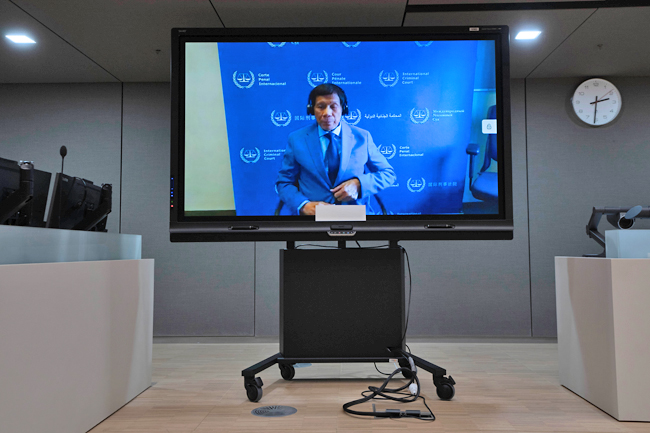MANILA (AP) – Former Philippine president Rodrigo Duterte marked his 80th birthday in detention in the Netherlands yesterday after the International Criminal Court (ICC) ordered his arrest, while in the Philippines, police forces braced for planned protests by his followers and opponents.
Duterte’s chaotic March 11 arrest at Manila’s international airport by police forces, which the ICC sought on an alleged crime against humanity, was a sobering turning point in the life of one of the most unorthodox leaders of the Philippines.
The ailing Duterte, now locked up in a detention centre in The Hague seaside suburb of Scheveningen, about 1.5 kilometres (km) from the global court’s headquarters, was “in high spirits” and was visited on his birthday by his Filipino common-law wife and their daughter, according to Philippine Vice President Sara Duterte, the ex-president’s daughter, who has been visiting him in detention.
A bag of clothes from his southern Philippine home and his favourite sugar-free soft drinks have been delivered to him in detention and a request for dental floss would follow, she told journalists and supporters earlier this week in The Hague. She added that she urged her father to cook his own food, an advice he said he could not likely follow, and write a book while in detention.
“I’m too old to write a book,” she cited her father as saying.

On March 15, the former president appeared for the first time by video from his detention before judges at the ICC after his arrest in Manila for alleged crimes against humanity. The case stemmed from the deadly anti-drugs crackdowns he oversaw from November 2011 until March 2019 while serving as mayor of Davao city and later as president.
ICC prosecutors accused Duterte of serving as an “indirect co-perpetrator” in the widespread murders, an allegation he has generally denied although he acknowledged under oath in a Philippine Senate inquiry last year that he had maintained a “death squad” of gangsters to kill other criminals when he was mayor.
He denied authorising police to gun down thousands of suspects when he was president but has repeatedly threatened drug traffickers with death and publicly told law enforcers to open fire on suspects, who violently resist arrests.
The estimated death toll in the police-enforced campaign during Duterte’s presidential term alone ranged from the more than 6,250 that Philippine authorities had reported to about 20,000 and 30,000 based on some human rights groups’s estimate.
In the ICC, Presiding Judge Iulia Antoanella Motoc set a pretrial hearing on September 23 to establish if prosecution evidence is strong enough to send Duterte to trial, which could take years. If Duterte is convicted, he faces a maximum sentence of life imprisonment.
Duterte could also apply for a temporary release, a prospect that has been opposed by still-fearful families of mostly poor suspects killed in his crackdowns.





